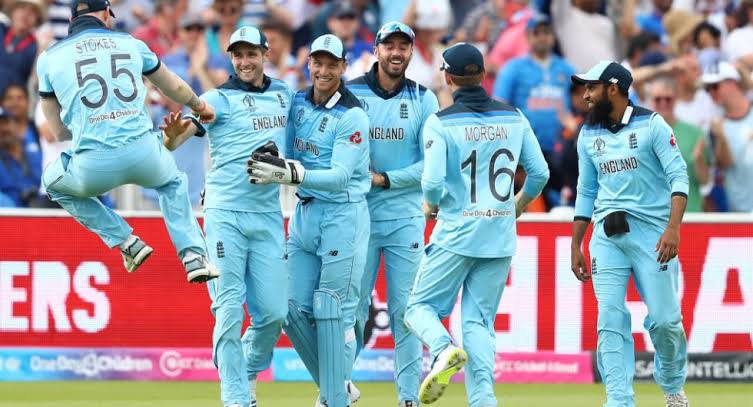
England win Cricket World Cup 2019
This World Cup final showcased the most remarkable, unexpected, and unbelievable conclusion I've ever seen in cricket. The Kiwis displayed remarkable grace in accepting their defeat in what was undeniably the most captivating final in the history of the tournament. Ultimately, England emerged victorious, clinching their first-ever World Cup title. Reflecting on how they achieved this feat, let's begin with the end.
The match had been enthralling from start to finish. However, in the final over, it delivered more surprises and tension than a Hitchcock thriller. With England requiring 15 runs to win from the last over, bowled by Trent Boult, Ben Stokes found himself on strike with just two wickets remaining.
The first two deliveries yielded no runs as Stokes struck the ball straight to the fielders and opted not to run, much to the disappointment of the majority of the crowd. Then, on the next ball, Stokes smashed it over midwicket for a six. With nine runs required from three balls, the tension continued to mount.
Here comes the twist that few scriptwriters could ever have imagined. Stokes swung at the ball once more, sending it towards midwicket. Martin Guptill swiftly retrieved it and threw it back to the wicketkeeper's end, where Stokes was racing to complete a second run. In a desperate attempt to reach safety, Stokes dived, but the ball struck his bat and ricocheted towards the pavilion. Despite a frantic pursuit by the Kiwi fielders, none could prevent it from reaching its destination.

In such circumstances, cricketing etiquette dictates that the batsmen should refrain from attempting runs, a rule which the two England players adhered to. However, once the ball had crossed the boundary, the umpires were left with no choice but to signal that six runs had been scored—two from the run taken plus the additional four from the overthrows. Now, with three runs needed off two balls, Stokes struck the ball to long on, but Adil Rashid was unfortunately run out at the bowler’s end while attempting a second run. Nevertheless, with two runs needed from the final ball, Stokes deliberately played the ball to long on, banking on the possibility of scrambling two runs. However, a perfect throw from Jimmy Neesham left Mark Wood nowhere near the crease.
And so the match ended in a tie, leading us to the super over, cricket's equivalent of a penalty shootout. Once again, Stokes and Jos Buttler stepped up for England, facing Boult with the ball. England managed to score 15 runs in their super over. Now, New Zealand, who had been on the brink of victory just 20 minutes earlier, needed 16 runs to win the World Cup. Neesham and Guptill took the field for New Zealand. Jofra Archer was entrusted with the task of bowling, a significant responsibility for the relative newcomer. The over began with a wide, followed by a powerful six from Neesham. Then came a misfield, bringing a sense of déjà vu. With three runs required off two balls, and then two off the last one, it became clear that if the match ended in another tie, England would win based on the somewhat arbitrary criterion of having hit more boundaries in the match.
Guptill struck the ball to midwicket. Jason Roy's throw was not perfect, but Buttler managed to gather it and dove for the stumps with Guptill a yard short. Somehow, England could celebrate victory, yet no sensible cricket fan in the stadium could argue that New Zealand deserved to lose. After this surreal hour, both teams emerged with immense credit, with some even feeling that New Zealand deserved more praise, given the cruel hand dealt to them by the cricketing fates.

Throughout the match, New Zealand displayed remarkable resilience in what appeared to be evolving into a slow-burning classic, captivating a broadened audience regardless of age or gender. They have mastered the art of defending modest totals, which are often considered insignificant in the modern era. In this instance, they had to defend a total of 241 runs.
They succeeded in reducing England to 86 for four by the 22nd over, putting the Kiwis in a favorable position. However, the situation became more challenging for them as Stokes and Buttler formed a resilient partnership reminiscent of MS Dhoni's style. Buttler maintained a brisk scoring rate, surpassing anyone else on the day with a run-a-ball pace, while Stokes demonstrated determination and resilience. Initially, it seemed as though this duo might lead England to a conventional victory as they added 110 runs. However, the New Zealand team capitalized on every opportunity and refused to yield an inch.
As the game approached its final over, the momentum shifted in favor of the New Zealanders. Although they would have preferred a larger total to defend, earlier in the day, England had displayed clinical efficiency in the field, with Chris Woakes and Archer particularly effective from the outset, exploiting the surprisingly green surface.
Guptill, who had been struggling for form, suddenly found his touch and struck a couple of impressive boundaries. First, he executed an uppercut over third man off Archer, sending the ball sailing for six. This was followed by a commanding straight drive over the bowler's head. However, Guptill's fortunes took a downturn as he was soon dismissed lbw by Woakes.
Meanwhile, Kane Williamson adopted a cautious approach at the crease, seemingly bracing for potential crises. After facing 22 deliveries, he had only accumulated two runs. However, the partnership between Henry Nicholls and Williamson steadied the innings. With the pressure gradually easing, the slip fielders were withdrawn, and Adil Rashid was introduced into the attack as the Kiwis steadily reached the three-figure mark in the 22nd over.

Eventually, Liam Plunkett managed to induce an edge off Williamson's bat, while Nicholls was bowled via an inside edge after a determined innings of 55 runs. Boundaries became sparse thereafter, although nobody anticipated that this would emerge as a pivotal factor. Ross Taylor was given out lbw to Wood, and despite some elegant strokes from Tom Latham towards the end of their innings, New Zealand couldn't accelerate as desired.
However, reaching the target of 242 soon appeared to be a daunting task for England. Boult's first delivery to Roy was nearly impeccable, triggering a massive appeal for lbw, which was turned down by Marais Erasmus. England opted for a review. Although the ball pitched in line, it was adjudged to be clipping the outside of the leg stump, resulting in Roy's survival courtesy of an umpire's call.
Meanwhile, at the other end, Matt Henry consistently troubled the batsmen, regularly beating the bat. Despite this, Roy occasionally showcased his prowess with majestic drives. However, on 17, Roy was once again beaten by a delivery, but this time it was revealed that the ball had brushed his bat.
Joe Root, typically a reassuring presence at the crease, failed to provide stability this time. Root, of all people, lost his composure. Against Colin de Grandhomme, he attempted a heave and missed. The following delivery was wider, and Root's attempt to hit it hard indicated trouble. What was meant to be a drive turned into a swish, resulting in his dismissal caught behind. This unexpected turn of events left the audience stunned; it was akin to witnessing a seasoned actor forget their lines on the biggest stage.
Shortly after, Jonny Bairstow was bowled off the inside edge by Lockie Ferguson, who went on to deliver something even more remarkable. Eoin Morgan, in an attempt to attack outside the off stump, sent the ball flying towards deep point. Ferguson sprinted in and executed a spectacular diving catch, a moment that felt like it could determine the outcome of the match. However, this was only the beginning of an astonishing and chaotic climax. What a day. What an unpredictable turn of events.































